DIY POETRY PUBLISHING POWER
"Publishing and editing is as much a creative act as writing poetry -- and just as necessary.”
Ivy Alvarez, poet and editor of the Private Press
A few years ago, I was bemoaning the difficulties of publishing a small collection of my poetry. After many years of writing poetry and increasingly consistent submission of my poems to various print and online literary magazines, I had started to experience success in the realm of having individual poems published, but no such luck when it came to a book. Eventually, I realized I was holding myself back by clinging to the outmoded notion that a published book would only be legitimate if somebody else published it for me. Why had I been thinking this, when all of this time I could have published it myself and furthermore, I could publish other people’s books, too. After all, I felt so passionate about poetry in part because it is such a creative, multifaceted, and sometimes strangely abstract terrain in which I can use my own imagination to express myself in whatever fashion I choose. Why not apply a similar style of imaginative creativity to poetry publishing? Why not allow myself to be empowered by the concept that I could do whatever I wanted to, not only when it came to my writing, but also when it came to starting up my own small press?
Fueled by a newfound DIY zest, some helpful pointers from fellow poets in the small press scene, and a desire to publish my own series of poems inspired by Laura Palmer of Twin Peaks fame (without being hindered by anybody else’s design decisions or time frame), I founded Blood Pudding Press in October 2006. Blood Pudding Press began as a one-woman independent operation, specializing in poetry and artsy little misfit offerings. It has remained the same in vision, but swiftly expanded in scope. Shortly after publishing my own first poetry chapbook as a pretty little guinea pig, I started publishing work by other writers, too—and now, less than three years in, I’m pleased to be able to say that Blood Pudding Press has published ten different chapbooks, ranging from single-author volumes to limited edition collaborations to multi-writer projects, with more books underway. All of these books are formatted, designed, and published in house (which means in my own personal art room) and include unique hand-designed flourishes, such as ribbon binding and collage art. Truly a labor of love, my publication process does involve a significant investment of resources (cardstock, text paper, printer ink, ribbon, and other creative supplies plus mailers and postage), focus, and time. Of course, there have been some glitches along the way, as well as moments where I’m sitting beside my second-rate ink jet printer, manually flipping yet another sheet of paper and feeling as if I’ll never be done printing the latest contributor copies and then I still have to bind them and design them. However, when I become overwhelmed, I try to think about how soon, some underappreciated poets will be receiving a well-deserved poetry gift in their mailboxes.
Indeed, one of the details that drew me to publishing material by other writers was the desire to give something back to the poetry community. I figured if I wished for others to publish my poetry, then I should be willing to publish others’ poetry, too. Poetry is more of a creative niche than a commoditized money-making market and as such, poets need to think about who is actually doing the work of publishing poetry. Chances are, it’s not going to be a major publishing house geared towards bestsellers. It’s much more likely to be a fellow poet who shares similar passions about a certain special kind of communication. Since poetry is not a major player within a money-making economy, some poets have taken to viewing the poetry community as more of a gift economy. They’re not involved in the poetry business to churn out product and make a buck; they’re involved to generate creations and share those creations. Within this kind of framework, book trades are common, poets are in the habit of sending out complimentary copies of their books in exchange for possible book reviews, and artistic collaboration can flourish. The more poets play a role in contributing to such exchange and collaboration and vital communication, the more the poetry community is enabled to expand and evolve and include more voices and grow in exciting new directions.
It can be very empowering and fun to stake out one’s own special space in the small press scene and then invite others inside for a visit. Part of the fun is that one can decorate her space in whatever style she chooses, celebrate and promote whatever kind of poetic aesthetic matters most to her, and then connect with likeminded writers to flesh out what once was a dreamy little brainchild into an ever evolving reality. Suzanne Savickas, poet and small press editor of Le Pink-Elephant Press, draws a comparison to Virginia Woolf’s “A Room of One’s Own” and also extends the concept into more communal terrain: “The small press is an outlet to build community, to support fellow writers and artists, and to provide ‘a room of one’s own’ for the woman who so often has had her voice suppressed”.
A number of small presses do indeed choose to focus upon women’s voices and feminist visions. Belladonna, a woman-centric press that recently celebrated its ten year anniversary, describes itself as “a reading series and small press that promotes the work of women writers who are adventurous, experimental, politically involved, multi-form, multicultural, multi-gendered, impossible to define, delicious to talk about, unpredictable, dangerous with language.” Dancing Girl Press defines part of its mission as to “propagate women's writing in particular, which in the small press world, still only accounts for less than a quarter of all published...To publish projects that created their own worlds…implicitly or explicitly feminist and women-centered”.
Birds of Lace editor Gina Abelkop states that her “ intention and desire when starting Birds of Lace was to assist in proliferating…brilliant, intense, strange work made by women and queers, wanting to send it out into the world to be shared with other like-minded folks. To share that work is to lessen loneliness, is to provide an alternative to the world of mainstream publishing where there is not much room for women and queers to exist (and write/be written) as three dimensional creatures. To distribute this work is not only a literary endeavor, but a political one.”
While some small press editors choose to focus upon underrepresented voices, others choose to represent particular poetic styles (from formal poetry to post-avant poetry to visual poetry) or other niches. For example, The Private Press, edited by Ivy Avarez, is in the midst of publishing a series of chapbooks based on the films of David Lynch. For another example, fledgling small press Tilt focuses upon publishing quality print chapbooks for individuals who have not yet published a collection of work. Founding editor Rachel Mallino states, “I find publishing emerging poets… rewarding because it offers a special platform specifically for the new.” Mallino also expresses, “Creating chapbooks by hand has become like a love affair for me... Each chapbook I create by hand is part me and part author - a melding of love for the whole world to see.”
How satisfying and significant it can be to take an active role in offering another choice, creating another alternative, defining one’s own platform or mission statement and then working towards navigating the terrain that will bring one’s vision to fruition, in a wonderfully frisson-esque fusion of the independent and the collective.
Like Mallino, I think that there is something endearingly close to the heart and charmingly personalized about hand-designed chapbooks, akin to artsy little artifacts. However, an online-based small press is also a very viable choice and exciting new e-presses seem to be proliferating lately. One great appeal of e-presses and e-books is that they allow the published work to be accessible to a wider readership, since they are typically available for free online to anyone who has access to an internet connection, whether via her own personal computer or at the library. Also, online-based presses may not be as limited by economic strictures related to publishing supplies (the aforementioned paper, ink, and postage) and as such, they may have more freedom and flexibility to publish more of the creative work they wish to propagate.
Whether online-based or print-based, small press editors also need to decide how they would like to disseminate and distribute their published wares; how to make their offerings available for reading or sale or trade. Some presses rely on personal websites, others build shops at etsy.com or other online handmade goodies forums, yet others utilize print-on-demand publishing services such as lulu.com (and many small presses that use lulu offer potential readers multiple format choices of their publications, such as a free PDF download version and a purchasable print version).
The myriad choices for how to approach one’s creative projects is a big part of what makes the realm of small press publishing so fun, multifaceted, and empowering. Editors can choose to collaborate with other writers and artists or can establish and enact their very own visions and then maintain creative control over every aspect of the process from time frames to design decisions to how many copies should comprise a print run to how to promote and market the finished creations. As far as I’m concerned, such personalized creations are much more significant and potentially powerful than churned out products any day. As Ivy Alvarez puts it, “To be a pro-active creator is more satisfying (and empowering!) than being a passive consumer."
Enacting one’s own creative powers and process and prowess to help a few likeminded others along the way and contribute positively to the poetry community is good news for poets, for poetry, for art, and sometimes for feminism. Returning to the ‘Room of One’s Own’ comparison referenced by Suzanne Savickas, she also spoke of the potential for small press editors to take part in attempting to “reconfigure the literary ‘room of one’s own’.” Speaking of reconfigurations, one goal of my own small press is to help define a succulent, provocative and sometimes queasiness-inducing mode of pussy-centrism that both women and men and the more gender fluid can embrace. Speaking more about her vision for Birds of Lace, Gina Abelkop explains, “There's a sense of shame, I think, in mainstream publishing, when it comes to putting out work that has a fiercely feminist or queer agenda, which is why Birds of Lace publishes only women (anyone who identifies as such) and queers: we are beautiful and political, and we strive to publish work that is unabashedly beautiful and political, though the politics appear in varying degrees, of course. I want this work to be printed, even if I'm just printing it in my apartment and stapling it together. Birds of Lace is a (very) small press, but it's also a belief made tangible that we have important and gorgeously rendered stories to share, that our stories and art and lives are worth so very, very much.”
Even small, heartfelt attempts to change the terrain of poetry publishing by using one’s own efforts, energy, and unique creativity to present the kinds of voices she thinks we should hear more of do have the potential to make a difference, to generate positive buzz, and to contribute very affirmatively to the mutable and ever-evolving landscape of contemporary poetry—and for those of us who are truly impassioned about that landscape, there’s really no good reason not to take an active role in its configuration and reconfiguration.
***
This is a simple reference list of the small presses mentioned in this article; it is by no means intended as a comprehensive or exhaustive resource list of the all the many wonderful print and online small presses publishing poetry today
~Belladonna, a reading series and print press based in Brooklyn, New York, online at http://belladonnaseries.org/index.html
~Birds of Lace, a print press based in San Francisco, California, editor Gina Abelkop, online at http://www.birdsoflace.com/
~Blood Pudding Press, a print & online press based in Columbus, Ohio, editor Juliet Cook, online at
www.bloodyooze.blogspot.com
~Dancing Girl Press, a print press based in Chicago, Illinois, editor Kristy Bowen, online at http://www.dancinggirlpress.com/
~Le Pink-Elephant Press, a print press based in Cleveland, Ohio, editors Suzanne Savickas and Lacie M. Clark, online at http://www.facebook.com/profile.php?id=1369980809
~The Private Press, a print press based in Cardiff, Wales, editor Ivy Alvarez, online at http://zoo.f2s.com/privatepress/index.html
~Tilt Press, a print press based in North Carolina, editors Rachel Mallino and Nicole Cartwright Denison, online at http://www.tiltpress.com/index.htm
For more small presses and all manner of DIY publishing information, the DIY Poetry Publishing Cooperative website is a fabulous resource, online at http://diypublishing.blogspot.com/
2/20/09
Subscribe to:
Post Comments (Atom)


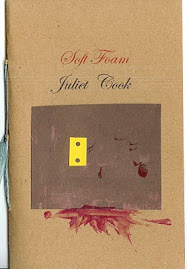





















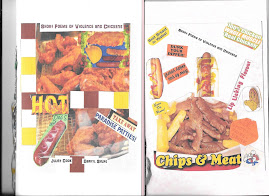





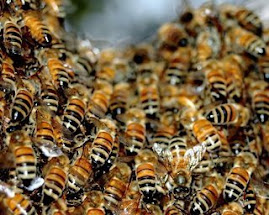












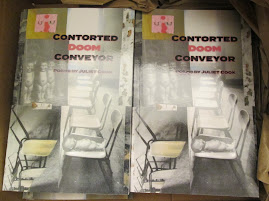
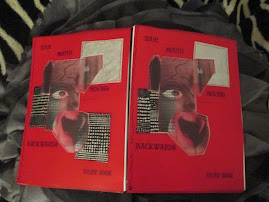









1 comment:
This was really interesting.
(And the list of links are really useful!)
Thanks for that.
Post a Comment